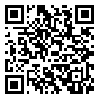To evaluate cold resistance in wheat in laboratory and to find fast and effective methods of evaluation, nine wheat genotypes were studied in three experiments at the College of Agriculture, University of Tehran, Karaj, Iran. Genotypes consisted of four Iranian cultivars, Sabalan, Boulani, Khalij and Naz one Russian cultivar, Bezostaya and four Iranian accessions, 518, 583, 592 and 1255. In experiment 1, genotypes were grown in 10-cm diameter pots and after hardening in the open, their LT50s were determined in cold chamber. Their cytoplasmic membrane stability were also measured at -12°C through electrolyte leakage measurements. In experiment 2, the genotypes were grown in the field to practice hardening in winter then plant crowns were transferred to the lab and their LT50s were determined. Water content of crowns and leaves, sugar content of crowns, and plant erectness were also measured. In experiment 3, water content of crowns and leaves of the genotypes were measured in non-hardened plants.
Cytoplasmic membrane stability, crown water content and crown sugar content of plants showed significant correlations with LT50. Membrance stability had the highest correlation with LT50 (r=0.88). A high correlation was found between crown LT50 of plants taken from field and LT50 from the plants in the lab (r=0.98). It was found that plant water content reduces with cold hardening. Water content reduction was higher in resistant genotypes compared to susceptible ones. There was no significant correlation between crown and leaf water contents with LT50 in non-hardened plants. Bezostaya with LT50=-16.7°C was the most cold resistant genotype and accession 518 with LT50=-8.2°C was the most susceptible genotype, in this study.
| Rights and permissions | |
 | This work is licensed under a Creative Commons Attribution-NonCommercial 4.0 International License. |



